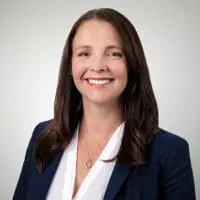Publication
Employees in California Get a Bump in Paid Sick Leave
By Brian J. Mills, Anne E. Dwyer, and Ashley McLachlan
On October 4, 2023, Governor Gavin Newsom approved Senate Bill No. 616 (SB 616), which significantly increases the amount of paid sick leave required under California’s existing paid sick leave law.
Under existing law, employees in California who work for 30 or more days within a year for the same employer are entitled to accrue paid sick days at a rate of not less than one hour for every 30 hours worked beginning at the commencement of employment, subject to use and accrual limitations. The statute allows employers to choose an alternative accrual method or provide paid sick leave in a lump sum, so long as employees receive no less than 24 hours or three days of paid sick leave by the 120th calendar day of employment.
SB 616 increases the overall sick leave entitlement for employees. Employees are still entitled to accrue paid sick leave at a rate of not less than one hour for every 30 hours worked, but under SB 616, the accrual cap has been modified from six days or 48 hours to 10 days or 80 hours. Additionally, the limit an employer can place on an employee’s use of accrued sick leave and the minimum amount of sick leave that must be provided under a lump sum method was increased from 24 hours or three days to 40 hours or five days.
SB 616 also increased the amounts of paid sick leave that must accrue if an employer uses an alternative accrual method. Specifically, California Labor Code Section 246(b) is revised as follows:
(3) An employer may use a different accrual method, other than providing one hour per every 30 hours worked, provided that the accrual is on a regular basis so that an employee has no less than 24 hours of accrued sick leave or paid time off by the 120th calendar day of employment or each calendar year, or in each 12 month period, and no less than 40 hours of accrued sick leave or paid time off by the 200th calendar day of employment or each calendar year, or in each 12 month period.
(4) An employer may satisfy the accrual requirements of this section by providing not less than 24 hours or 3 days of paid sick leave that is available to the employee to use by the completion of the employee’s 120th calendar day of employment, and no less than 40 hours or 5 days of paid sick leave that is available to the employee to use by the completion of the employee’s 200th calendar day of employment.
The new law also extends these requirements to employees covered by collective bargaining agreements. The legislature also made clear that this law preempts any local ordinances that provide less generous leave requirements.
SB 616 is scheduled to go into effect January 1, 2024. Now is the time for employers to double check their paid sick leave and paid time off policies and employee handbooks for compliance with California’s revised paid sick leave law.
About Snell & Wilmer
Founded in 1938, Snell & Wilmer is a full-service business law firm with more than 500 attorneys practicing in 17 locations throughout the United States and in Mexico, including Phoenix and Tucson, Arizona; Los Angeles, Orange County, Palo Alto and San Diego, California; Denver, Colorado; Washington, D.C.; Boise, Idaho; Las Vegas and Reno-Tahoe, Nevada; Albuquerque, New Mexico; Portland, Oregon; Dallas, Texas; Salt Lake City, Utah; Seattle, Washington; and Los Cabos, Mexico. The firm represents clients ranging from large, publicly traded corporations to small businesses, individuals and entrepreneurs. For more information, visit swlaw.com.



